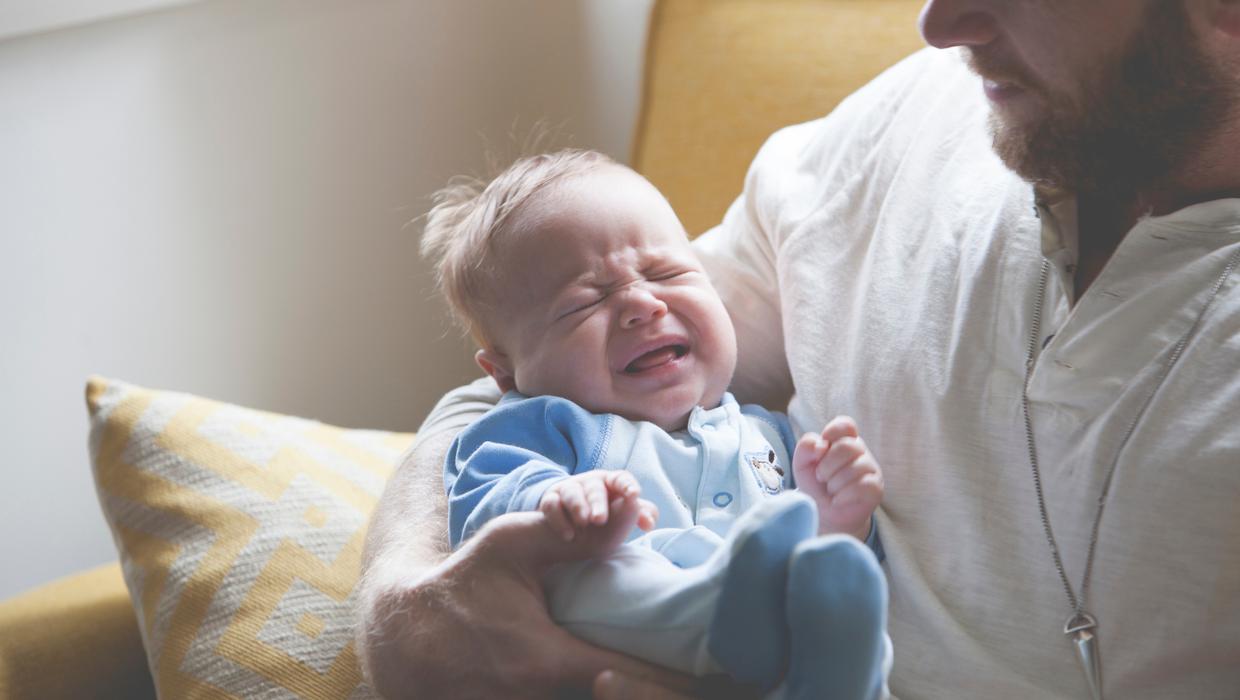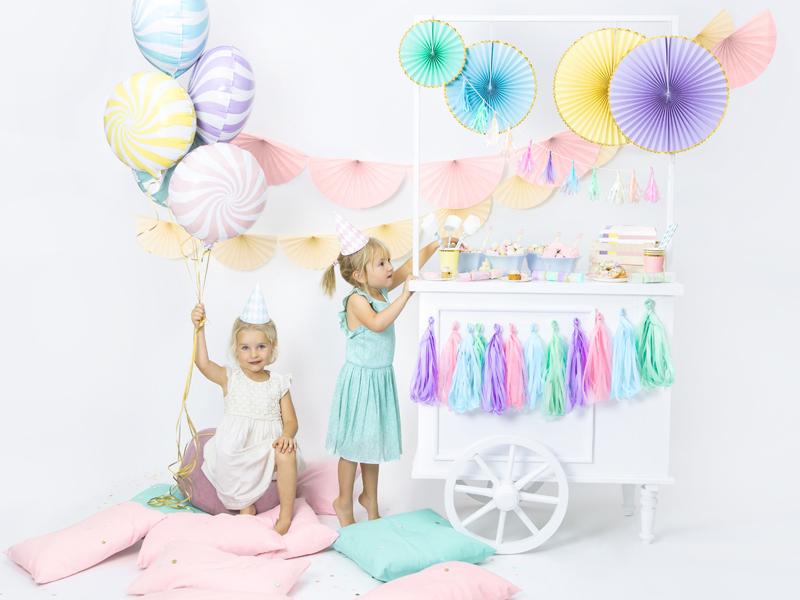Children
Tips For Managing Toddler Troubles

Shortly after your child begins to walk, an amazing chapter unfolds—toddlerhood! This time of transition for parents and children can often lead to frustration. But don’t panic! Here are some of the more difficult toddler troubles, with solutions to help you through these sometimes trying times.
Are you the parent of a toddler? If so, chances are you understand the many ways these youngsters can get themselves into trouble. Whether it’s harassing the dog or the baby sister, toddlers crave attention—and they want it now! Are you looking for ways to keep your toddler’s outbursts at bay but don’t know where to start?
Here are some of the more common toddler troubles, with information on why these behaviors happen and what you can do to stop them.
Refusing to Sleep

Toddlers are just learning how to do things on their own. Now they can walk, talk, and eat by themselves—and they love to express their newfound independence. So when your little one doesn’t want to go to bed, he will probably let you know!
“Many toddlers refuse sleep because of separation anxiety,” says Dr. Mary Muscari, PhD, RN, professor of pediatric nursing at the University of Scranton in Pennsylvania, and author of the Not My Kid parenting books. Children of this age are just getting used to sleeping alone, so it’s important to make a ritual of bedtime. For example, develop a set before-bed routine: Your child takes a bath, puts on his pajamas and brushes his teeth, you then read him a story, and so on. Once these rituals are in place, bedtime usually becomes much easier. A self-soothing transitional object may also be in order, says Dr. Muscari. This can be a blanket, teddy bear, or another soft object your child loves.
Refusing to Eat
Toddlers often refuse to eat because they aren’t growing as quickly as they did during infancy; they are hungry less and eat smaller portions. Many toddlers are also picky eaters, says Dr. Muscari. As a result, you may find the need to provide more mealtime encouragement.
“Don’t make it a battle because it’s no contest,” advises Dr. Muscari. “Toddlers always win.” Instead, try to make your foods more toddler-friendly.
Serve finger foods and put meals in sectioned plates. Instead of giving your child three large meals, give her several smaller ones, suggests Dr. Muscari. And every time she tries a new food, “heap on the praise,” adds Dr. Kenneth Haller, MD, assistant professor of pediatrics at Saint Louis University School of Medicine. And don’t forget to always reward your child’s positive behavior.
Sibling Rivalry
Most sibling rivalry is caused by jealousy. Your toddler may believe that a younger sibling is receiving more attention than he or she really is, and consequently act out to gain more of your attention. To avoid this common trap, ensure that all of your children receive equal time and attention. Dr. Muscari suggests that if your toddler is the eldest in your family, give him praise for being the big brother and try to ignore negative behavior. Dr. Haller explains, “Your child soon will figure out that he gets more attention from you when he sits quietly reading a book than when he throws it at his little sister.
Temper Tantrums

They come as if from nowhere—and often at the most inopportune times, such as in the middle of the grocery store or at a friend’s house. For many toddlers, the world seems to end when they don’t get their way. How should you deal with these outbursts? “Ignore them,” says Dr. Muscari. Your child is screaming and yelling because he or she wants your attention. You’re only encouraging more tantrums in the future if you react to them now. Try distracting your toddler—mentioning that it is almost mealtime or asking her where a favorite toy is can take her out of a difficult situation and help her move on.
Excessive Crying
Children typically cry for a reason, whether they’re seeking attention or experiencing legitimate fears or worries. But excessive crying is something parents must address. “Figure out why the child is crying and deal with the underlying cause,” says Dr. Muscari. You can do this by simply asking, adds Dr. Haller. Even if it sounds silly, their reasons are very real. If your little one is afraid of being alone in her room at night, or is afraid of “monsters” under the bed, talk with her about her feelings. Make these emotionally-charged situations fun—get out the flashlight and search in the closets and under the bed together.
If you suspect your child is genuinely feeling sad or scared, try to empathize with her.
“Acknowledge that your child is upset, and that it makes you upset, too,” says Dr. Haller. But if your little one is in a defiant mood, you may just have to let her calm down on her own.
If an answer still doesn’t come, look for signs of injury or illness, says Dr. Haller. Is your child holding his stomach or head? If so, maybe his tears are a result of not feeling well. Remember, confronting why your child is crying is much more important than putting a stop to the crying.
Biting and Hitting
Toddlerhood is a time of raw and often uncontrollable emotions. If you little one suddenly has an aggressive outburst resulting in biting or hitting, make it absolutely clear that you do not approve of this behavior. Be firm, but don’t display violence of your own. “This undercuts your message that violence is bad,” says Dr. Haller. Try a time out when your toddler acts this way. Be sure to discuss with him why he had to take time out and always reinforce positive behavior. Don’t forget to tell him you love him after his quiet time, and that it makes you extremely proud when he doesn’t act out or behave violently.
Independence

What can you do when your toddler suddenly wants to do everything on her own? “Use your judgment,” says Dr. Haller. “You know what your child can handle safely and what she can’t.” Be around when she wants to try new things and offer a guiding hand. Strive to help your child to refine her motor and mental skills, while giving her an overall feeling of accomplishment. Think of it this way: your toddler is going to try to do things on her own anyway, so why not be there to help? The key is to try and prevent possible injuries or bruised egos. Of course, if your toddler is trying to do something dangerous, a firm “no” is in order. Safety first!
Toddlerhood is undoubtedly challenging, but with a little perseverance and a lot of patience, your child will grow up and out of these common toddler troubles. It’s a bumpy journey, but before you know it, she’ll be starting kindergarten. So, try to enjoy this time while it lasts—the teenage years are right around the corner!
Children
Crying Babies – How To Stop An Infant From Crying

As babies have no means of indicating to you what they require, the only way they might express themselves is by crying. Everything is incredibly new to them, every feeling, every encounter. For first-time parents, this could be a very stressful period for them since it is not simple to understand what their babies want or need. Don’t worry however, because more often than not when your baby cries, there are just a number of things it needs and you will be able to get the hang of things with ease.
The ideal place to start is with the baby’s nappies. Have a look to be certain the diaper’s not soiled as a baby will typically let you know if it has, by crying. In the event that this is the issue, once you put a new pair of diapers on a newborn, she will finish crying and be all smiles again If you discover that your baby cries much more as you attempt to diaper-change her, just do it anyway as some infants do not like being nappy-changed. The reason why this happens is simple. During a diaper change, a baby may feel chilly when you remove her diapers so don’t become overly worried and change the diaper swiftly. Next, wrap the baby with a blanket, so that the baby feels secure again.
Like mentioned beforehand, a baby will cry when she feels chilly and could also cry if she is feeling over-heated. Thus the next on the checklist would be to make certain she is dressed in the right amount of attire. The more efficient method to clothe a baby is by layering many items of garments. This way, you might easily keep your baby comfortable by just adding up or removing layers. What you might do is add on one layer more relative to what you now have on.

Infants will also cry when they are starving, and as a result this is the next thing to check. In the event that your baby hasn’t been fed for a few hours, it is going to be likely she will gladly receive your offering for the milk. Try and see if she will. Babies require constant feeding intervals because they grow so rapidly. It is best that you keep an eye on their bottle-feedings and keep their meal intervals consistent. Sometimes the act of sucking helps to calm the baby, even in the event that they’re not particularly hungry. You don’t need to be anxious about over-feeding your baby. The great thing about them is that unlike grown ups, they automatically understand when to stop feeding when full. Your baby will cease crying once isn’t thirsty or hungry any more.
After feeding, most babies build up gas. The baby’s digestive system is only just developing, and feeding is a especially new experience. Sometimes crying means that the little one has some gas rumbling around in the stomach, and needs to be burped. It is a good idea to have a clean napkin on your shoulder before you burp her, just in case she throws up(that is quite common). Then place your newborn a little above your shoulder. To get her to burp, position her head slightly over your shoulder. Be certain you do this softly and support her head with your hand since her neck muscles are still not strong enough. rubbing her back softly in rounded movements. This helps to place pressure from the stomach and back, and easily produces the essential burping. A little gentle patting may also be of assistance, but be extremely cautious if you choose to do this – infants are incredibly delicate.
If you’re having problems burping your baby, try walking around your residence with her on top of your shoulder. This helps most of the time because being in their mother’s womb, they’re used to the bouncing movement. As you hold her close to you, she will feel calmer too. Most people suggest that you should not cuddle your baby too much and in a way it is just nonsense. Don’t trust all that the media and magazines tell you as their recommended ideas on how to be a parent changes just like the seasons. Babies want to feel secure via your cuddle.
Some babies also find it very reassuring to be swaddled in a little blanket. Swaddling involves wrapping the blanket all-around the baby’s body reasonably tightly. There are countless instructions on the internet that you could discover and learn how to swaddle correctly, just carry out a search on Google. Just be sure not to swaddle your newborn too often after a month or so as this might inhibit their muscle development. Be sure that her neck and neck stay uncovered after you swaddle her.

In the event that the crying still persists after attempting everything on the list, then it might simply be a mood swing and it will pass. In the meantime, you can buy a CD containing wave sounds and quietly play it back to her and notice if it helps. In the womb, babies hear similar noises so hearing these noises now might just offer them some reassurance and comfort. Particular babies are incredibly sensitive to sound, and an average house produces a lot of noise! You can even try a radio tuned off-station, and as a result all you will hear is “white noise”.
As time goes by, you will find that you can begin to notice the variance between your baby’s cries, and so you most likely won’t need to go through the list of things every moment your baby cries.
If you have definitely tried everything and nothing solves the crying, get your baby to a medical doctor as a last resort as he ought to be able to tell you if there are any serious illnesses at play here.
Children
Dress Up Your Childs Birthday Party By Dressing The Party

Children’s birthday parties seem to be becoming more elaborate and more expensive every year. The themes for children’s birthday parties seem timeless somehow, though. The little girls all want to have princess or Cinderella parties and all little boys still have to have birthdays filled with superheroes and villains. How can you make your child’s next birthday party memorable, fun and not break the bank? Consider a dress-up party complete with costumes!
Fancy dress or costume parties used to be a mainstay of childhood and thought fun enough for even the adults. In Victorian times, when childhood really came into its own, fancy dress parties as they were known then were THE thing for birthdays and holidays. Grown ups would hold entire costume balls, dancing the night away while wearing masks and outrageous attire. Fancy dress fell out of fashion around the time of the First World War, though, and is now considered to be the exclusive realm of Halloween. You can revive this tradition and give it an updated twist, at the same time.

Let’s suppose your daughter wants a princess or fairy tale or fairy themed birthday party this year. Now, you can create a fairy tale castle cake. You can search online for fairy tale and princess and even fairy related games and activities. And I’m sure the party would be a big success for her and her little friends. But imagine the success it will be when you present each and every little princess present with her own princess costume! Cinderella never had it so good, believe me. Her fairy god mother only provided her with one choice of ball gown. You can individualize the costumes so that each girl has the dress of her dreams, or you can let the guests decide on their own choice of frock and slipper, as most costumes and accessories are designed to fit a range of clothing sizes. Add some costume jewelry and Voila! A birthday party fit for any Royal Highness or fairy band. Allowing the little girls to take their costumes home means that you’ll not have to fool with the hassle of purchasing and putting together “goody bags” full of sugary candy or cheap treats not worth purchasing.
Let’s not forget the little boys, shall we? All little boys love superheroes, don’t they? Again, you can figure out how to do a Bat signal cake. And you can probably turn your family room or patio in something resembling the Bat Cave. Now, imagine the delight on his face when you turn him into Batman, or Robin, or even the super-est of the super, the ultimate hero, Superman! Again, you can customize the costumes to match the desires and tastes of your son’s little friends, or you can purchase one dress-up outfit per guest and let them decide who best fits their “real world” undercover, man-on-the-street persona. Even his gal pals can get in on the action, too, with superheroine costumes sure to please the feminine fancy. Once again, allowing the children to take their costumes home a their party favor not only makes for a party that’ll be the talk of the playground for weeks to come, but will also save you the expense and trouble of the tired, overdone treat bag favors.

Teens can get in on the fun and excitement, too. As much as they’d like to think they’re too old for fun and game type parties, most teens love to dress in costume. Costumes allow the teen party goer an opportunity to put aside the awkwardness so often experienced at social functions and free them to have fun and be someone other than themselves. Imagine a bunch of modern day hippies or disco dancers groovin’ on your backyard makeshift dance floor to the sounds of the sixties or seventies. Pirates can run amok, waging war, hunting for treasure and rescuing (or capturing) the damsel in distress. You may need to be a bit more careful when selecting costumes for teens, as sizes of teens can vary almost as widely as the sizes of the costumes. Sending teens home from a costume party with a costume of their very own is certain to spell success for your son or daughter’s party and can perhaps help them in the fragile world of teen social circles.
Providing your child or teen with a memorable, fun and unique birthday party needn’t be a chore or a big hassle anymore. Design the party around a costume theme and you’ve got half of your planning done already. (If you can’t think of a theme, just ask the birthday star. He or she will no doubt have plenty of ideas to share!) or, for the more adventurous, do without a theme or make fancy dress up THE theme and watch everyone’s eyes light up as they survey the choices of costumes arrayed in front of them. Make this year’s party the biggest and best yet by stepping back in time and bringing a bit of the past to the present. Making a present of the costumes to the birthday boy or girl and all the guests will ensure a party that no one will forget for a long time to come!
Children
How Can an Educational Consultant Help You

Planning for college can be one of the most stressful times in both a students and parent’s life. Every year the admission standards for most colleges get tougher and getting into the school you want can be a challenge. You’ll need a good transcript from your primary education as well as a great score on college entrance exams. You also need to decide what college’s best fit your educational and career goals before you apply. Having an educational consultant help you with this preparation can make all the difference. A good educational consultant will help you prepare for college in several ways and will also help you pick a group of schools that perfectly match your higher-education needs.
Tutoring for Success

There are several aspects to consider when preparing for a students college experience. Some of these activities start early in their educational journey and others happen when they are older and about to graduate high school. These activities tend to fall into the two main categories of education and preparation.
The educational needs of a child might involve tutoring to make sure they are absorbing important material in class and getting the best grades possible to maintain a high GPA that is needed to give them the widest choice possible for college. This tutoring could be on a specific subject, or even a specific topic within a subject. Tutors will spend time with your child and assess what their needs are and create a program to fit. Some children attend regular tutoring sessions even when their grades are good to make sure they stay ahead of new concepts and material. Tutoring can also improve a child’s test taking abilities. For example a good example of Florida tutoring is done at the Florida Bright Futures center. Before they start any program they will give the student an assessment to discover the areas the student needs help mastering. Once this is done, they then structure an individual program around each students needs. This schedule will also include a few sessions on how to prepare for and take a test.
Taking an exam can be a stressful thing and not every student that understands a subject does well on exams. There are many reasons for this, but knowing how to prepare for an exam as well as techniques for improving the way a child takes the exam can be very valuable. A tutor can help with this and will actually develop a study process for the student that may involve developing study guides and individual study techniques that the student can use to prepare for an exam.
Another thing that a professional educational counselor will help with is college selection and application preparation. They will help you and your student select schools that will fit your needs concerning location, tuition, educational focus and any special interests the student might have. Once you have compiled this list, they will help you prepare the applications for these schools and assist the student present themselves in the best possible light on the application and in person for the interview. This step of preparation is essential in giving the colleges the right impression and can often times make the difference in being accepted.
There is also a wide range of entrance exams needed for college acceptance and getting a good grade on these exams assures you the widest choice of schools. These tests are very specific and cover a range of topics. Having help in preparing for these exams can make a big difference in the resulting grades and by extension gives the student a bigger choice of possible colleges. Having an educational counselor working with the student to prepare for these exams is critical and can take a lot of the stress out of the process. Also, there are certain study techniques that can help with these exams and knowing how to prepare will help the student as well. This might include a few classes to help prepare as and may include practice testing to give the students a flavor of the type of questions that will be on the actual exam like the FCAT.

Many students need to take these exams several times to obtain the required score and an educational counselor will help with keeping track of these scores and may even schedule subsequent exams.
Another way for students to stay ahead of their studies is to attend a specialized summer camp. There are many camps that are organized around improving a certain skill set for school and these can be a lot of fun for the students. They are usually for a weeklong session and allow the students to enjoy camping out with friends and catching up on their studies. Because they are exposed to intense studying techniques and games, students tend to retain more information than they would in a more traditional classroom. These sessions can even be tailored to accommodate a specific subject or range of subjects for a particular grade.
Learning centers are also great places to help a child who has some emotional maturity issues. These centers can develop a program of counseling that will better equip the student to handle any social issues they encounter and help them to cope with the stress of education.
When looking for an educational consultant, be sure to do some research. You want to select a company that has years of experience on their staff and also taught in a real school setting. Also ask about their previous experience in helping students with placement. See if the schools you are considering for your child are on their list of schools that they have helped place a student. Be sure to see what type of tutoring programs they offer and if they have specific programs for SAT and FCAT preparation. Ask them if the tutoring is done as part of a group, or is more individual.
Getting the answers to these questions will help you select the perfect facility for your child’s needs. Finding the extra help you need with tutoring can make a big difference in your student’s grades and attitude towards school. They will be better prepared for their studies and have less pressure of falling behind. Developing the skills to study more effectively will help them for years to come. Having an educational counselor work with the student to assess their skills and develop a program for helping them reach their goals will ensure their success in college and beyond.
-

 Children4 years ago
Children4 years agoWhy Private School for Your Child?
-

 Children4 years ago
Children4 years agoEating Healthy with kids
-

 Children4 years ago
Children4 years agoHelping Your Child Pick The Best Extracurricular Activities
-

 Children4 years ago
Children4 years agoWhy are kids picky eaters
-

 Children4 years ago
Children4 years agoHow to Deal With Children During a Divorce
-

 Children3 years ago
Children3 years agoEducational Activities For Young Children In The Kitchen With Parents
-

 Children4 years ago
Children4 years agoParenting Pro Tips 11 ways to drive your teenager nuts
-

 Parents4 years ago
Parents4 years agoThe Legalized Abduction Of Children











